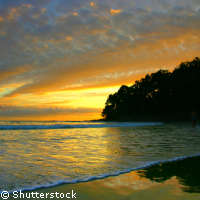Global oceans need closer monitoring, scientists suggest
An international network of scientists has called for the completion of a world marine monitoring system within the next decade. Timely analysis of the temper and vital signs of the oceans is increasingly more important to the well-being of humanity, explain the members of the Partnership for Observation of the Global Oceans (POGO), emphasising the benefits of close ocean surveillance to the general public as well as policy-makers. The call comes ahead of the meeting of the intergovernmental Group on Earth Observation (GEO) on 28 to 30 November in Cape Town, South Africa. There, ministers and officials from GEO's member states - including 72 countries and the European Commission - will discuss the progress made with regard to the Global Earth Observation System of Systems (GEOSS). 'A system for ocean observing and forecasting that covers the world's oceans and their major uses can reduce growing risks, protect human interests and monitor the health of our precious oceans,' says Dr Tony Haymet of the University of California, San Diego, who chairs POGO's Executive Committee. 'The world community resolved to construct a comprehensive, integrated ocean observing system two decades ago,' Dr Haymet adds. 'The good news is we have demonstrated that a global ocean observing system can be built, deployed and operated with available technologies. Now we must move from experiment and proof-of-concept to routine use. We have progressed less than halfway to our initial goals. Let's complete the task before we are struck by more tsunamis or comparable calamities.' In order to set up an adequate initial system, the following elements are considered to be necessary: - a stable network of satellites surveying vast extents of the surface of the oceans; - fixed stations taking continuous measurements on the seafloor or as floats and buoys moored in the water column and at the surface; - small robot submarine ocean monitors, some drifting with the currents, others motoring along programmed routes; - marine animals outfitted with electronic tags that equip them to capture and transmit data about the environments they visit; - merchant marine and research vessels, observing along their routes. According to POGO estimates, €1.4 to 2 billion would have to be invested. However, 'a continuous observing system will return the investment many times over in safer marine operations, storm damage mitigation, and conservation of living marine resources, as well as collecting the vital signs of the ocean that are needed to monitor climate change.' The POGO forum was created eight years ago by directors and leaders of 36 marine research institutes with the aim of promoting global oceanography. POGO tries to address the information needs of decision-makers, researchers, service providers, and the general public and ultimately help create a global observation system.



